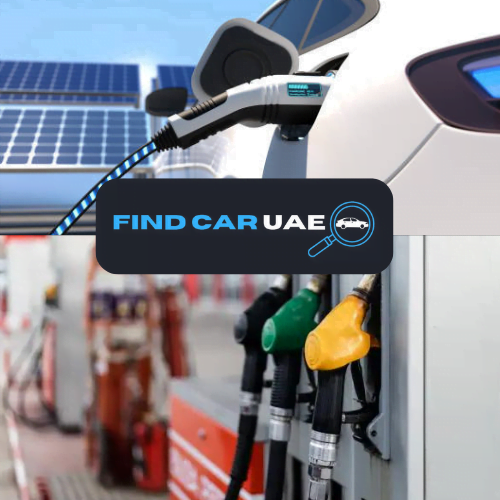

Electric vs. Gasoline: Which is the Best Choice for 2024?
As we move further into the 21st century, the automotive industry is experiencing a significant shift. The debate between electric vehicles (EVs) and gasoline-powered cars continues to grow as both technologies evolve rapidly. With advancements in electric vehicle technology and increasing environmental concerns, many potential car buyers in 2024 are weighing the pros and cons of each option. This article delves into the key factors to consider when choosing between electric and gasoline vehicles in 2024.
Environmental Impact
Electric Vehicles (EVs):
- Pros: EVs produce zero tailpipe emissions, significantly reducing air pollution and greenhouse gases. They are powered by electricity, which can be generated from renewable sources such as solar, wind, and hydro power.
- Cons: The environmental impact of EVs depends on how the electricity is generated. If the power comes from fossil fuels, the benefits are reduced. Additionally, the production and disposal of batteries can have environmental consequences.
Gasoline Vehicles:
- Pros: Gasoline cars have been the standard for over a century, and the infrastructure for refueling is well-established.
- Cons: Gasoline vehicles emit pollutants such as carbon dioxide, nitrogen oxides, and particulate matter, contributing to air pollution and climate change.
Cost of Ownership
Electric Vehicles (EVs):
- Pros: EVs typically have lower running costs due to cheaper electricity compared to gasoline and fewer moving parts, which reduces maintenance costs. Government incentives and rebates can also lower the initial purchase price.
- Cons: The upfront cost of EVs can be higher than gasoline cars, although this gap is closing. Battery replacement costs, though decreasing, can still be significant.
Gasoline Vehicles:
- Pros: Generally, gasoline cars have a lower upfront cost compared to EVs. The resale market is well-established, and there are more options available across different price ranges.
- Cons: Gasoline prices can be volatile and high, and maintenance costs for engines, transmissions, and exhaust systems can add up over time.
Driving Range and Convenience
Electric Vehicles (EVs):
- Pros: Advances in battery technology have significantly increased the range of EVs, with many models now offering over 300 miles on a single charge. Charging infrastructure is expanding rapidly, making it easier to find charging stations.
- Cons: Charging an EV can take longer than refueling a gasoline car, though fast-charging options are improving. The availability of charging stations can vary by region.
Gasoline Vehicles:
- Pros: Gasoline cars have a long-established refueling infrastructure, making it easy to find a gas station virtually anywhere. Refueling is quick, typically taking only a few minutes.
- Cons: Despite advancements, gasoline engines are generally less efficient than electric motors, meaning higher fuel consumption and costs over time.
Performance
Electric Vehicles (EVs):
- Pros: EVs offer instant torque and smooth acceleration, providing a responsive and enjoyable driving experience. They are typically quieter than gasoline cars, offering a more serene driving experience.
- Cons: While performance is generally excellent, the driving dynamics can differ from traditional gasoline cars, which some drivers may need time to adjust to.
Gasoline Vehicles:
- Pros: Gasoline engines can provide a satisfying driving experience with a familiar feel and sound. High-performance gasoline cars are renowned for their power and speed.
- Cons: Gasoline engines can be noisier and less smooth compared to electric motors. They also require more frequent maintenance to keep them running efficiently.
Infrastructure and Future Trends
Electric Vehicles (EVs):
- Pros: The infrastructure for EVs is rapidly expanding, with more charging stations being installed globally. Governments are investing in EV infrastructure and offering incentives to accelerate adoption.
- Cons: In some regions, the charging infrastructure may still be underdeveloped, making long-distance travel more challenging.
Gasoline Vehicles:
- Pros: The infrastructure for gasoline vehicles is well-established, with abundant refueling stations and service centers.
- Cons: As regulations tighten and cities move towards low-emission zones, the future of gasoline cars may face restrictions, potentially affecting their long-term viability and resale value.
Conclusion
Choosing between an electric and a gasoline vehicle in 2024 depends on various factors, including environmental concerns, cost of ownership, driving habits, and available infrastructure. Electric vehicles offer significant benefits in terms of environmental impact, lower running costs, and advancing technology. However, gasoline vehicles still hold advantages in terms of refueling convenience, initial purchase price, and well-established infrastructure.
As the automotive landscape continues to evolve, potential car buyers should carefully consider their specific needs and circumstances. For those looking for a greener and potentially more cost-effective option in the long run, an electric vehicle may be the best choice. On the other hand, for those prioritizing convenience and familiarity, a gasoline car could still be a viable option. Ultimately, the best choice will depend on individual preferences and the specific offerings available in the market at the time of purchase.
Add a comment Cancel reply
Categories
- Auto Detailing (1)
- Automobile Reviews (2)
- Automobiles (1)
- Automotive (10)
- Automotive Industry (3)
- Automotive Reviews (2)
- Automotive Trends (2)
- Car News (10)
- Car Reviews (3)
- Cars in UAE (12)
- Classic Cars (1)
- Electric Vehicles (4)
- Green Technology (2)
- UAE-CARS (60)
Recent Posts
Related posts


Best Cars for Uber & Careem Drivers in UAE – Maximize Earnings

Top 10 Car Accessories Every UAE Driver Should Have








